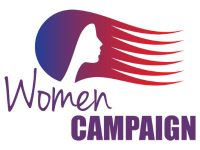In today’s digital age, social media has become a crucial tool for political campaigns. With over 2 billion active users, Facebook is one of the most popular social media platforms. However, when using Facebook for campaigns, should you use a profile or a page? We outlined the pros and cons of using a Facebook page versus a profile for your political campaign.
First, let’s define what a Facebook profile and a page are. A Facebook profile is an individual’s personal account on the platform, while a Facebook page is a public profile created by an organization or business. Pages are designed to help organizations connect with their audience and build their brand on the platform.
Pros of Using a Facebook Page for a Political Campaign:
Reach: Facebook pages have no friend limits, so anyone can like and follow a page, which means a campaign can reach more people. Additionally, Facebook pages allow you to run paid ads, which can significantly increase your reach to a targeted audience.
Analytics: Facebook pages come with built-in analytics tools that allow you to track your page’s performance, audience engagement, and reach. These insights can help you optimize your social media strategy and create better content to engage your followers.
Professionalism: Facebook pages are designed to represent businesses, organizations, and public figures, giving them a more professional look and feel. A page can help a campaign appear more legitimate and credible in the eyes of potential supporters.
Security: Facebook pages are more secure than profiles. With a page, multiple admins can manage the content, and there’s no risk of accidentally sharing personal information with the wrong people. Facebook Business Manager helps you coordinate your team members with access to your page, creates a centralized location for prepare and publish posts, and allows you to manage your Facebook ad campaigns.
Cons of Using a Facebook Page for a Political Campaign:
Limited Personal Connection: Facebook pages are designed for content sharing, not personal interactions, making it hard for campaigns to build personal connections with their supporters. Since social media (and campaigns) are all about building relationships, you will have to work hard to ensure your page feels authentic and approachable.
Time-Consuming: Managing a Facebook page requires time and effort. A campaign will need to create content, respond to comments and messages, and monitor their analytics regularly. A page that is not regularly updated can quickly lose followers and appear inactive.
Pros of Using a Facebook Profile for a Political Campaign:
Personal Connection: A Facebook profile allows a candidate to build a personal connection with their audience. Profiles are designed for personal interactions, and they allow you to tell your story and share your values and opinions with friends.
Easy to Use: Facebook profiles are easy to use and require minimal effort to set up. A campaign can quickly create a profile and start sharing content without additional training or knowledge.
Cons of Using a Facebook Profile for a Political Campaign:
Intended Use: Facebook profiles are not intended to be used by a campaign, organization or business. They are designed for individuals and personal updates. Branding a profile as a campaign and sharing login information with team members is a terms of service violation that could get you banned from the platform. If using a profile, you will need to do so in the candidate’s name, sharing first-person content.
Limited Reach: Facebook profiles have a friend limit of 5,000, meaning a campaign can only reach a limited number of people. Additionally, profiles do not allow you to run paid ads, which can significantly increase your reach to a targeted audience.
Limited Tools: By using a Facebook profile, you cannot access tools like ads, analytics and the Facebook business manager to allow others to help manage your Facebook presence. These tools help you get your message out and improve the security of your online image.
When it comes to political campaigns, both Facebook profiles and pages can help you connect with voters. A Facebook page can also help a campaign reach a broader audience, appear more professional, and offer built-in analytics. However, sticking with your Facebook profile may feel more personal and authentic. Regardless of your choice, social media is a great way to connect with and get messages out to your supporters.







